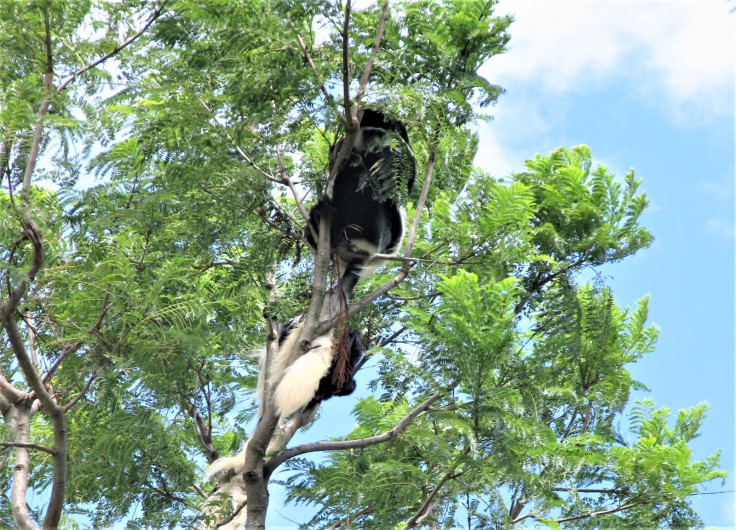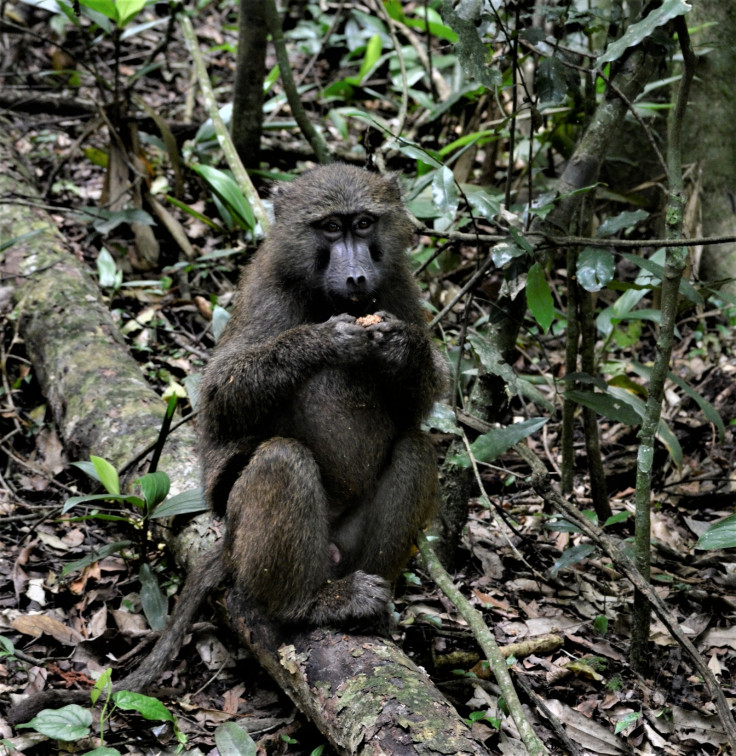What primates eat predicts how big their brains will be
Feeding habits are more closely linked to brain size than social behaviours.
The brain size of primates may be best predicted by what they eat, rather than by their social organisation, scientists have discovered. New findings have revealed that non-human primates who feed on fruits are more likely to have larger brains than those with a diet based on leaves.
Compared with other mammals, primates have relatively large brains. This has long intrigued scientists, leading them to come up with different hypotheses for the emergence of big brains in the primate lineage.
In the 1970s and 1980s, the earliest studies on the subject mostly focused on ecological factors. Their authors investigated the idea that foraging for food may have helped primates improve their cognitive abilities and increase their brain size, as they had to remember where different food resources were located. These studies were also consistent with the idea that the processing of meat and other foods contributed to subsequent increases in hominin brain size by fulfilling corresponding higher energy requirements.
However, from the 1990s the focus of the debate shifted. The "social brain hypothesis" came along after scientists showed a link between the size of a group and the size of the brain. The earliest papers on the social brain hypothesis showed a link between group size and the neocortex ratio, then later studies by the same authors showed this relationship also held for relative brain size.
The idea behind this was that the ability to process the quality of different individuals within a large group and the relationships between them had led to the development of heightened cognitive abilities and larger brains.
"Since then, the social brain hypothesis kind of stuck. I wanted to find out whether one area of social behaviour – mating behaviour – could also be linked to brain size. However, when I looked at the data previously published on the subject, I found some inconsistencies", Alex DeCasien, lead author of the latest study published in Nature Ecology & Evolution, told IBTimes UK.

Some studies have shown that polygynandrous primate species have the largest brains, consistent with the idea that large groups – who produce the most interactions – might be the most cognitively demanding. The problem was that other studies had concluded that monogamous species have the largest brains, arguing that monogamy potentially requires greater deception and manipulation abilities if primates want to mate with other individuals than their partners.
DeCasien, from New York University, wanted to find out whether one hypothesis was more likely than the other. Because there is much more data available today than in the past regarding primates' brain size, new investigations were possible.
Diet has the greatest impact
The team compiled the largest dataset assembled so far on non-human primate brain sizes from more than 140 different species, and created a model to explore the link between brain size, multiple measures of sociality (including group size, social system and mating behaviours) and diets (whether primates ate mostly fruits or leaves).
The researchers discovered that no variables of sociality had an impact on brain size, but diet and feeding habits did. After controlling for each species' evolutionary relatedness and their relative body sizes, they found that fruit-eating primates have around 25% more brain tissue than those who only ate leaves.

Although it's not possible to entirely explain this phenomenon, the scientists hypothesise that it is likely due to a combination of cognitive demands (remembering the fruit locations and how to extract fruit flesh) and energetic rewards (fruits are energy-rich compared with energy-poor plants).
"What we have here is a positive evolutionary feedback loop. Increasing diet quality lifted the constraint to developing a big brain, which in turn improved foraging capabilities and helped the primates find fruits that are less easy to find in the environment", DeCasien said.
© Copyright IBTimes 2025. All rights reserved.






















